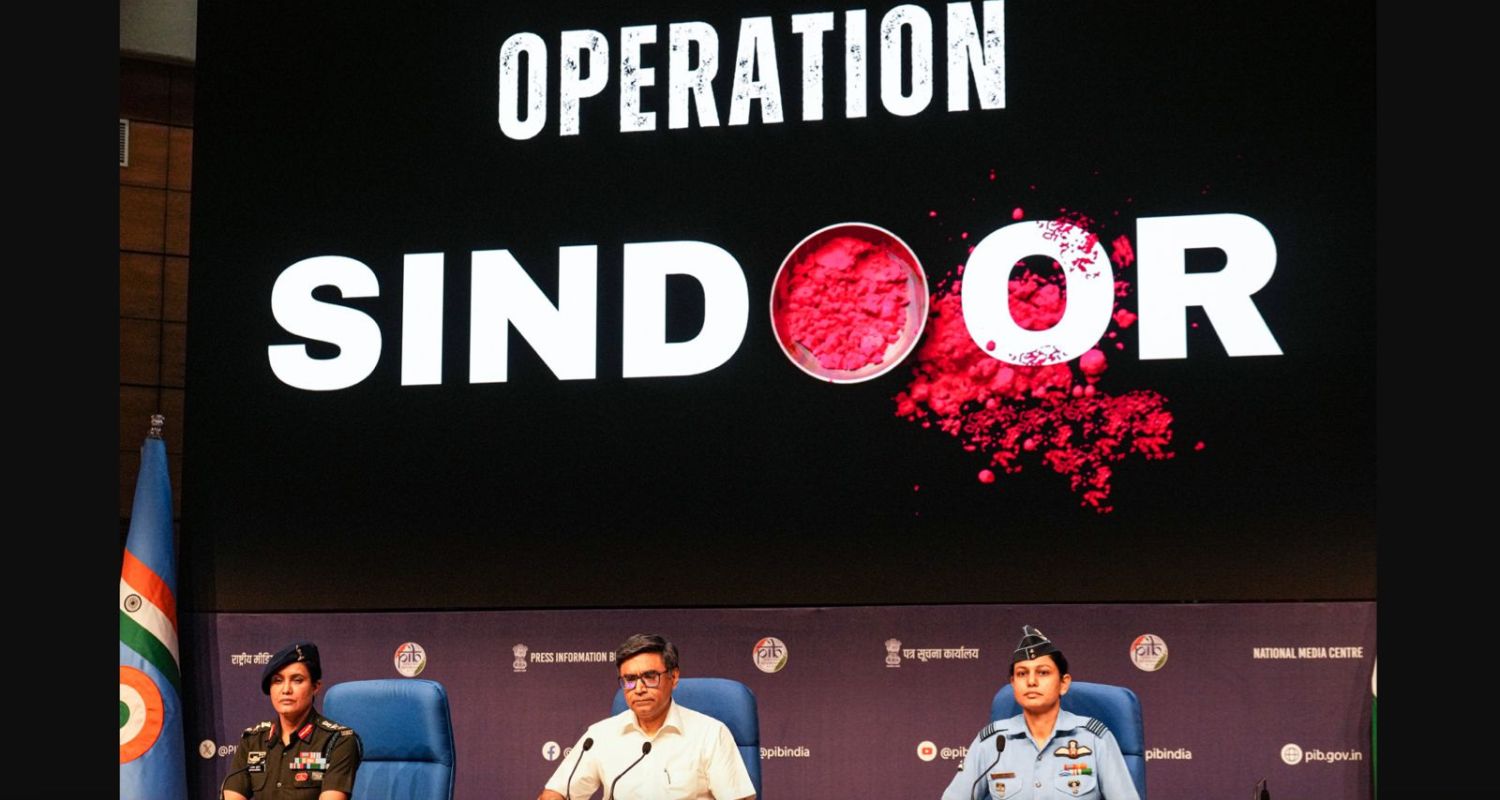In a decisive military action, India announced on Wednesday that it had launched precise strikes on nine terror camps located in Pakistan and Pakistan-occupied Kashmir (PoK) during a swift 25-minute operation. The strikes, executed through a combination of air and ground operations, began at 1:05 am and concluded by 1:30 am.
At a press briefing, Foreign Secretary Vikram Misri said the strikes were carried out in response to the April 22 terror attack in Pahalgam, Jammu and Kashmir, which killed 26 people.
Misri emphasised that India exercised its right to respond, pre-empt, and deter further cross-border attacks. He underlined that the operation was “measured, non-escalatory, proportionate, and responsible,” specifically aimed at dismantling terrorist infrastructure and preventing further infiltration.

Military officials present at the briefing — Colonel Sophia Qureshi and Wing Commander Vyomika Singh — provided operational details and visual footage from Indian airborne surveillance systems. Col Qureshi clarified that no civilian or military installations were targeted during the strikes.
“All the targets were specifically identified buildings or clusters of buildings linked to terror activities. Each was neutralised with clinical precision,” said Wing Commander Singh, adding that the strikes used niche technology and specially chosen warheads to ensure minimal collateral damage.
Wing Commander Singh also reaffirmed India’s readiness to handle any escalation. “Our armed forces are fully prepared to respond to any Pakistani misadventure that may follow.”
The government reiterated that while the strikes were precise and restrained, India is fully prepared to respond to any escalation from its nuclear-armed western neighbour.
Foreign Secretary Misri also placed the strikes within a broader strategic context, recalling previous measures such as suspending the Indus Waters Treaty. “It was deemed essential that the perpetrators and planners of the April 22 Pahalgam attack be brought to justice,” he said.
Despite the two weeks since the Pahalgam attack, Pakistan had taken no visible action against terrorist groups operating from its territory or from PoK. “Instead, Pakistan continues to indulge in denials and baseless allegations,” Misri noted.
Indian intelligence had intercepted signs that Pakistan-based terror modules were planning further attacks. This made it necessary to act both as a deterrent and as a pre-emptive strike, he added.
Also Read: TRF chief Sheikh Sajjad Gul 'mastermind' behind Pahalgam attack
Misri identified the perpetrators of the Pahalgam attack as Pakistan-trained operatives from the Lashkar-e-Taiba (LeT). He said the aim of the attack was to disrupt the return of normalcy in Jammu and Kashmir, particularly by targeting tourism — a key pillar of the region’s economy, which saw a record 23 million visitors in 2023.
“The attack was calculated to halt development and create conditions favorable for continued cross-border terrorism,” said Misri.
He also pointed to the group “The Resistance Front” (TRF) which claimed responsibility for the April 22 attack. Misri described TRF as a front for the UN-proscribed Lashkar-e-Taiba. India had previously provided evidence to the UN's 1267 Sanctions Committee in May and November 2024 detailing TRF’s role as a proxy for Pakistan-based terrorist networks.
India had also alerted the UN about how terror groups like Lashkar and Jaish-e-Mohammed were operating under the garb of smaller outfits such as TRF. Notably, Pakistan had pushed to exclude any mention of TRF from the UN Security Council’s April 25 press statement — a move India strongly objected to.
Misri added that the investigation into the Pahalgam attack had revealed communication between the terrorists and their handlers in Pakistan. Claims made by TRF were amplified by known social media handles linked to Lashkar-e-Taiba, further exposing the group's affiliation.
He concluded by saying that Indian intelligence had successfully identified the attackers based on eyewitness testimony and other leads, and had also mapped out the broader support network that enabled the Pahalgam strike.
Also Read: Operation Sindoor: India strikes 9 terror camps in Pak


